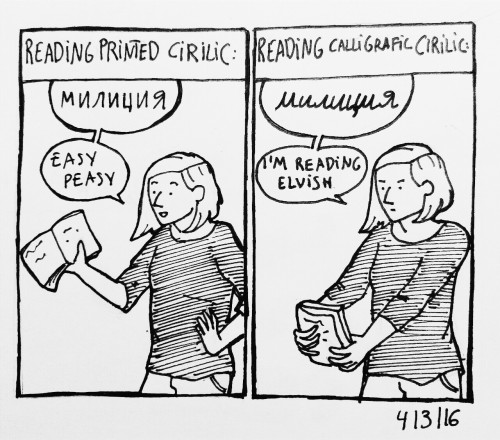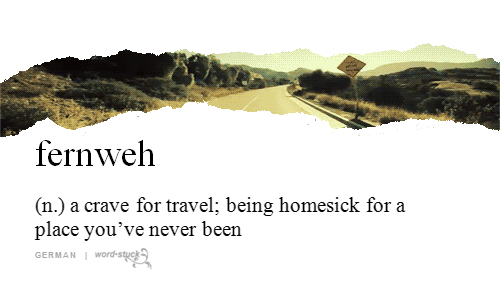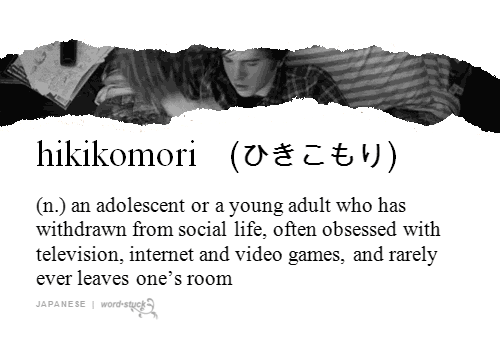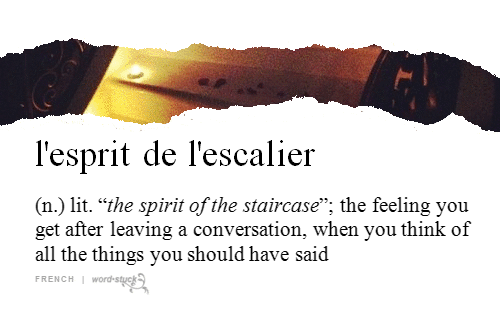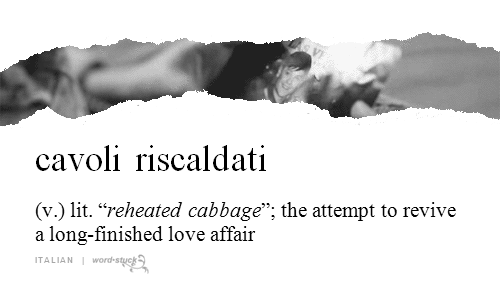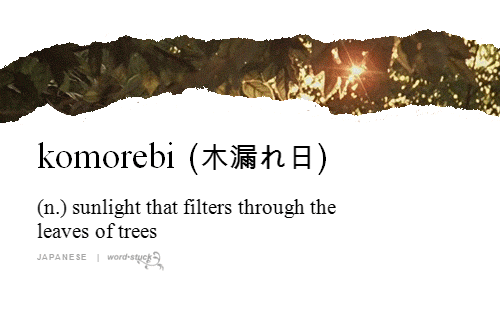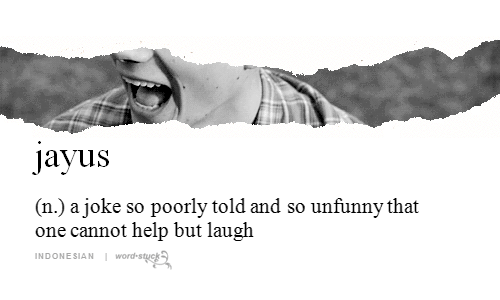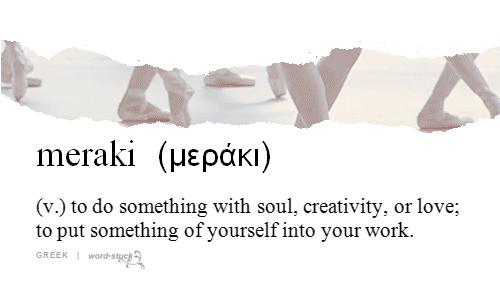Dive into your creative stream
Languages - Blog Posts
I was discussing with a friend about the translation choice for The Fellowship of the Ring in French. In the first translation, the translator Francis Ledoux uses ‘communauté’ for ‘fellowship’, in the meaning of ‘a group of people united by a common goal or shared traditions’*. This is almost exactly the same definition the online Cambridge dictionary** gives for ‘fellowship’. However, ‘fellowship’ has another meaning, a little outdated, that keeps the idea of a shared goal or interest but with the added nuance of a bond of friendship formed over this goal.
And that’s where the new French translation comes in, with the title La Fraternité de l’Anneau instead of La Communauté de l’Anneau. Daniel Lauzon chose ‘fraternité’ for fellowship, meaning ‘the bond between people within a same group, working toward a same goal’*** There is an outdated and specific use for ‘fraternité’ in the context of a medieval, feudal society, to design the bond between knights who swore to protect each other in battle and always fight for the same cause. And knowing just how much Tolkien was influenced by the Middle Ages for his universe, this seemingly trivial difference of translation has me foaming at the mouth like a rabid dog. Because it means the translator, Daniel Lauzon in this case, really took the time to study and look for the exact nuance of a word to best render the idea of The Fellowship of the Ring in the translated title of the book. This is so in line with Tolkien’s love for languages and words, I am over the moon.
There is a big debate amongst French speaking Tolkien fans about old vs new translation but I am a hardcore defender of Daniel Lauzon’s translations of The Lord of the Rings because it’s the one that made me fall in love with Tolkien’s style and poetry even though it was not the original version, and that’s a feat. It’s not perfect, no translation is ever perfect, but it had this feeling of deliberate choice for each word to best render the multiple meanings of a sentence or poem. Francis Ledoux’s translation feels too dry and artificial to me, even though I love how he translated Strider by Grand-Pas, or ‘Big-Steps’
* https://www.larousse.fr/dictionnaires/francais/communaut%C3%A9/17551
** https://dictionary.cambridge.org/dictionary/english/fellowship
*** https://www.larousse.fr/dictionnaires/francais/fraternit%C3%A9/35113
YES!!
anyone else really want to just live in as many countries as possible, pick up as many languages and dialects as possible, absorb as much culture and ways of life as possible



Parte 2:Razones por las que a los japoneses jamás se le va a dar bien el inglés: Sean bienvenidos, japonistasarqueológicos, a una nueva entrega, en esta ocasión hablamos del inglés en Japón, una vez dicho esto pónganse cómodos qué empezamos. - Por la que a los japoneses les cuesta el inglés más de una te sorprenderá, los japoneses para poder aprender inglés desde cero les lleva alrededor de 500 horas alcanzar el nivel principiante; sin embargo, se necesitan unas 250 horas para aprender coreano o indonesio al mismo nivel principiante. Una de las razones por las que los japoneses no son buenos en inglés es debido a la pronunciación, esto es un hecho. - La estructura gramatical del inglés es: SVO (sujeto-verbo-objeto) donde el verbo va primero, mientras que en japonés, SOV (Sujeto-Objeto-Verbo) donde el verbo va al final. Además, la estructura de las oraciones difiere entre el inglés y el japonés, el inglés es muy estricto en cuanto al orden de las palabras. En japonés utilizamos unas 120 palabras en un minuto de conversación normal. El inglés emplea aproximadamente 1,5 veces más palabras, razón por la cual los japoneses sienten que hablan inglés más rápido. Por ejemplo, la palabra japonesa “personalidad” tiene tres fonemas. Cuando se trata de inglés, necesitamos cinco fonemas: pa/so/na/li/ti, y para transmitir la misma información, necesitamos hablar más rápido. La razón por la que a los japoneses les resulta difícil escuchar y hablar inglés es probablemente porque se les exige que usen habilidades que normalmente no emplean. パート2:日本人が決して英語が得意にならない理由:日本の考古学者たちよ、新しい回へようこそ!今回は日本の英語について話す。 - なぜ日本人は英語が苦手なのか?日本人がゼロから英語を学んで初級レベルに達するには約500時間かかるが、韓国語やインドネシア語を学んで同じ初級レベルに達するには約250時間かかる。日本人が英語を苦手とする理由のひとつに発音があるが、これは事実である。 - 英語の文法構造はSVO(Subject-Verb-Object)で動詞が先に来るのに対し、日本語はSOV(Subject-Object-Verb)で動詞が最後に来る。また、文の構造も英語と日本語では異なり、英語は語順に非常に厳しい。日本語の場合、通常の会話で1分間に使う単語は約120語。英語はその約1.5倍の単語を使うので、日本人は英語を話すのが早いと感じるのです。例えば、日本語の「パーソナリティ」という単語には3つの音素がある。それが英語になると、パ/ソ/ナ/リ/ティの5つの音素が必要になり、同じ情報を伝えるためには、より速く話す必要がある。日本人が英語を聞くのも話すのも難しいと感じるのは、普段使わない能力を要求されるからだろう。 - 今後の記事でお会いできることを楽しみにしています。 Part 2: Reasons why the Japanese will never be good at English: Welcome, Japanese archaeologists, to a new instalment, this time we are talking about English in Japan, so make yourselves comfortable and let's get started. - Why the Japanese have a hard time with English more than one will surprise you, it takes the Japanese around 500 hours to learn English from scratch to reach beginner level; however, it takes around 250 hours to learn Korean or Indonesian to the same beginner level. One of the reasons why Japanese people are not good at English is because of pronunciation, this is a fact. - The grammatical structure of English is: SVO (Subject-Verb-Object) where the verb comes first, while in Japanese, SOV (Subject-Object-Verb) where the verb comes last. Also, sentence structure differs between English and Japanese, English is very strict about word order. In Japanese we use about 120 words in one minute of normal conversation. English uses about 1.5 times as many words, which is why Japanese people feel they speak English faster. For example, the Japanese word "personality" has three phonemes. When it comes to English, we need five phonemes: pa/so/na/li/ti, and to convey the same information, we need to speak faster. The reason why Japanese people find it difficult to listen to and speak English is probably because they are required to use skills they do not normally use. - I hope you like it and see you in future posts, have a good week.
So I bought a bunch of stencils (is that the right word?) and in one of the packs was this one.
And since I don't trust google translation, I thought I would ask if anyone knew what this means?

Sometimes I am so grateful that I speak Arabic, because I can not imagine learning it with no prior knowledge.
Learning a language and slang at the same time is crazy bc i‘ll use a phrase and be like „is this a slang term and acceptable in casual conversation, a rare but correct phrase, or absolute bullshit that makes me look like an idiot“
So, let me add my two cents to this conversation. I’m German and in my language, every noun has a gender (either female, male or neuter) and gets referred to by gendered articles which are der (the, masculine), die (the, feminine) or das (the, neuter) and it‘s the same with the pronouns for said noun where there are either er (he), sie (she) or es (it) pronouns used for the word.
And while the moon in many languages is seen as a symbol for femininity, which probably stems from the moon being a female noun in Latin (Luna, Lunae f.), in German, that is not the case.
In my language, the moon is a masculine noun and referred to by male articles. We say DER Mond (the moon) and when we want to say that it looks beautiful, we‘d say: “er sieht schön aus”, aka “he looks beautiful.”
So, what’s the takeaway from all of this? The easiest way to phrase it is, that both cultures and languages are simply very different all around the world. I know that that sounds a bit.. obvious but I have recently observed that, especially on the internet, there seems to be a “right” and “wrong” way to go about things.
Seeing matters from a perspective that isn’t typically “Latin” or “American” is often shunned and shut down online because people aren’t used to it.
You can easily see that happen in the above post, where the user who posted the photo and caption was immediately shunned by the people in the comments for using the “wrong” pronoun for the moon.
Which is kind of funny to me, seeing as in English, nouns DON’T EVEN HAVE gendered pronouns. So this is definitely coming from the culture online being heavily influenced by Latin, as the internet seems to be a very western space and many of those languages have roots there.
But to me it is important to say that just because Luna is a commonly used term when talking about the moon, that doesn’t have to mean that everyone needs to agree on it being female. In my language, that isn’t the case and I’d very much feel pretty annoyed if anyone told me that my or my language’s/culture‘s perspective is somehow wrong.
So, as the person above my way too lengthy post already said: we‘re not all Romans. And in my humble opinion, that‘s a good thing. So stop policing other people on stuff like this, just because they have a different perspective on this. Emphasis on the word DIFFERENT by the way. Different, not wrong.


I think I'm gonna start using he/him for the moon on purpose now.
reblog if you think sign language should be taught as a language in schools.
🗣🗣🗣🗣🗣
Me: lives in a community where Spanish is the most popular second language, the only option for high schoolers that want to learn a language, & most of my friends speak it
Also me: tries to learn every language other than Spanish
Architectural Words of High-Arcana
This just some words used my the Architects / Gods of my mythos ( The Piper Wars mythos ) to magical control reality. Elementus ( Elemental ) Words: Aiero = Air / Wind Anam = Soul / Spirit Cré = Earth Chronoss = Time Codexus = Digi-Materia / Digital Information Derlana = Electricity Hemoss = Blood Gravtoss = Gravity Lann = Light / Photo Machina = Machines Magnes = Magnetism Matara = Matter / Solid-Material Narcess = Self Necross = Necrotic-Energy / Death Ogher = Ice / Cryonic-Energy Psychiss = Mind Radioss = Radiation Aqiss = Water Tine = Fire / Flame Umbriss = Darkness / Shadow Vitia = Life / Vitality Weapia = Weapon / Implement Vlles = Flesh Silvarali = Silver-Light / Divine Light / Luciferian Light Formus ( Forming ) Words / Actoss (Action ) Words: Armeri = Armor / Shell Ascedor = Rise / Ascend Devos = Deform / Breakdown Dominostrass = Dominate / Control Fayda = Find / Locate Gail = Vibrate / Pulsate Paraza = Bind / Restrain Ga = Go Imprusa = Imprision / Cage Invetia = Invert Kinde = Cone Materia = Materialize Mendri = Mend / Repair Phallicia = Penis / Phallus Pillerum = Pillar / Column Pellta = Pull / Drag Ripola = Ripple / Wave Shaw = Shield Shuriko = Shuriken Straka = Strike / Melee Vortoss = Vortex Zeth = Nebulate / Mist / Fog Targeting Words: Ven = Self / Me Ver = Their ( Targeted area of effect ) Vie = Them ( Unnamed designated group ) Vor = Them ( Single unnamed target )
Presenting Potentially Butchered Dutch
Donderdagmiddag heeft de gedachte van dekens een smaakmaker gedragen.
The Dutch language is awesome.
So like, which hermit would you headcannon to know a ton of languages or what unexpected languages do you think some could speak?
Like one day scar just starts angrily ranting in French, or that time wels started roasting people in Japanese, maybe mumbo ordered chicken wings in Russian, or sometimes joe just tiredly mumbles random things in Icelandic. What weird things would this even bring?
Even better, where do you think they learned it?
EYO, I GOT SOME QUESTIONS TO ASK YOU
Hello friends,
I’m curious about something—and I love collecting empirical data (maybe it’s the autism/j 🤔). I wanted to do something about it,
So, I have some questions:
1. How many languages do you speak? (You can include ones you’re not fluent in, but please specify)
2. What are they?
Follow up: how many of your friends speak the same language(s)?
3. Where did you grow up (Country, state, province or whatever)?
Follow up: Describe your neighborhood to me, was it nice, bad, expensive, cheap, etc.
4. How financially well off were you as a child?
Follow up: If you feel comfortable sharing, what was the income your parent(s) made?
5. What ethnicity are you?
6. What job do you have now?
Follow up: And if you feel comfortable sharing, how much money do you make? (Also, please add if your pay is salaried or hourly)
Finally, what are some interesting facts about your language?
This is for a little project of my own that I’m doing. I know there are some issues in the school system (I’m an American, what do I expect) and I got curious. I want to see how many factors play in to the amount of languages someone speaks.
Most of the time, education is expensive—at least in the U.S it is (our public school system is shit). Yet, languages seem to be an outlier. The prissy rich white kids that can barely speak English, let alone a lick of Spanish, present an exception to the rule (education is expensive).
Also, a lot of my friends speak more than one language, but the American school system requires them to learn two while *in school*. Also, a lot of them speak languages that aren’t taught at my school— like Tagalog, Hindi, Gujarati, German, Russian, etc.— and I’m wondering if there’s a pattern to it.
Bíodh lá maith agat a chairde agus Que tengan buen día amigos
How the HECKKKKKK do people stick to just one language? I can’t wrap my head around that. I love learning about different languages and all and I see the value in every one and I just want to learn everything..how do people fight those urges? Like, I know I should focus on my current target language, but I’m so tempted to learn everything, even though I know I can’t and won’t..does anyone else relate and how do you combat this? T-T
75 MORE essential single-character verbs (单字动词)

People seemed to really enjoy my recent post 75 essential single-character verbs (单字动词)...so here's 75 MORE VERBS.
It was really difficult to put together the first list. I had a spreadsheet of literally hundreds of characters that I had to whittle down. So I was happy to give some of the eliminated characters a second chance.
Definitions are from MDBG. For some characters with additional meanings, I have bolded the meanings I want to highlight.
(76) 欠 qiàn - to owe / to lack / (literary) to be deficient in / (bound form) yawn / to raise slightly (a part of one's body)
(77) 顿 dùn - to stop / to pause / to arrange / to lay out / to kowtow / to stamp (one's foot) / at once / classifier for meals, beatings, scoldings etc: time, bout, spell, meal
(78) 逗 dòu - to tease (playfully) / to entice / (coll.) to joke / (coll.) funny / amusing / to stay / to sojourn / brief pause at the end of a phrase (variant of 讀|读)
(79) 沉 chén - to submerge / to immerse / to sink / to keep down / to lower / to drop / deep / profound / heavy
(80) 挡 dǎng - to resist / to obstruct / to hinder / to keep off / to block (a blow) / to get in the way of / cover / gear (e.g. in a car's transmission)
(81) 晒 shài - (of the sun) to shine on / to bask in (the sunshine) / to dry (clothes, grain etc) in the sun / (fig.) to expose and share (one's experiences and thoughts) on the Web (loanword from "share") / (coll.) to give the cold shoulder to
(82) 聚 jù - to congregate / to assemble / to mass / to gather together / to amass / to polymerize
(83) 派 pài - clique / school / group / faction / to dispatch / to send / to assign / to appoint / pi (Greek letter Ππ) / the circular ratio pi = 3.1415926 / (loanword) pie
(84) 叠 dié - to fold / to fold over in layers / to furl / to layer / to pile up / to repeat / to duplicate
(85) 缠 chán - to wind around / to wrap round / to coil / tangle / to involve / to bother / to annoy
(86) 嫁 jià - (of a woman) to marry / to marry off a daughter / to shift (blame etc)
(87) 逼 bī - to force (sb to do sth) / to compel / to press for / to extort / to press on towards / to press up to / to close in on / euphemistic variant of 屄
(88) 喊 hǎn - to yell / to shout / to call out for (a person)
(89) 躲 duǒ - to hide / to dodge / to avoid
(90) 抓 zhuā - to grab / to catch / to arrest / to snatch / to scratch
(91) 藏 cáng - to conceal / to hide away / to harbor / to store / to collect
(92) 瞒 mán - to conceal from / to keep (sb) in the dark
(93) 挑 tiāo - to carry on a shoulder pole / to choose / to pick / to nitpick
(94) 扑 pū - to throw oneself at / to pounce on / to devote one's energies / to flap / to flutter / to dab / to pat / to bend over
(95) 踏 tà - to tread / to stamp / to step on / to press a pedal / to investigate on the spot
(96) 断 duàn - to break / to snap / to cut off / to give up or abstain from sth / to judge / (usu. used in the negative) absolutely / definitely / decidedly
(97) 捡 jiǎn - to pick up / to collect / to gather
(98) 拖 tuō - to drag / to tow / to trail / to hang down / to mop (the floor) / to delay / to drag on
(99) 肯 kěn - to agree / to consent / to be willing to
(100) 挖 wā - to dig / to excavate / to scoop out
(101) 摔 shuāi - to throw down / to fall / to drop and break
(102) 伸 shēn - to stretch / to extend
(103) 摸 mō - to feel with the hand / to touch / to stroke / to grope / to steal / to abstract
(104) 绕 rào - to wind / to coil (thread) / to rotate around / to spiral / to move around / to go round (an obstacle) / to by-pass / to make a detour / to confuse / to perplex
(105) 飘 piāo - to float
(106) 碰 pèng - to touch / to meet with / to bump
(107) 染 rǎn - to dye / to catch (a disease) / to acquire (bad habits etc) / to contaminate / to add color washes to a painting
(108) 搁 gē - to place / to put aside / to shelve
(109) 铺 pū - to spread / to display / to set up / (old) holder for door-knocker
(110) 托 tuō - to trust / to entrust / to be entrusted with / to act as trustee
(111) 捧 pěng - to clasp / to cup the hands / to hold up with both hands / to offer (esp. in cupped hands) / to praise / to flatter
(112) 剥 bō | bāo - to peel / to skin / to shell / to shuck
(113) 挠 náo - to scratch / to thwart / to yield
(114) 填 tián - to fill or stuff / (of a form etc) to fill in
(115) 瞅 chǒu - (dialect) to look at
(116) 蹲 dūn - to crouch / to squat / to stay (somewhere)
(117) 溜 liū - to slip away / to escape in stealth / to skate
(118) 坠 zhuì - to fall / to drop / to weigh down
(119) 撩 liáo - to tease / to provoke / to stir up (emotions)
(120) 牵 qiān - to lead along / to pull (an animal on a tether) / (bound form) to involve / to draw in
(121) 装 zhuāng - adornment / to adorn / dress / clothing / costume (of an actor in a play) / to play a role / to pretend / to install / to fix / to wrap (sth in a bag) / to load / to pack
(122) 望 wàng - full moon / to hope / to expect / to visit / to gaze (into the distance) / to look towards / towards
(123) 编 biān - to weave / to plait / to organize / to group / to arrange / to edit / to compile / to write / to compose / to fabricate / to make up
(124) 冻 dòng - to freeze / to feel very cold / aspic or jelly
(125) 抛 pāo - to throw / to toss / to fling / to cast / to abandon
(126) 喷 pēn - to puff / to spout / to spray / to spurt
(127) 刻 kè - quarter (hour) / moment / to carve / to engrave / to cut / oppressive / classifier for short time intervals
(128) 逃 táo - to escape / to run away / to flee
(129) 偷 tōu - to steal / to pilfer / to snatch / thief / stealthily
(130) 吐 tù - to vomit / to throw up
(131) 摁 èn - to press (with one's finger or hand)
(132) 瞪 dèng - to open (one's eyes) wide / to stare at / to glare at
(133) 递 dì - to hand over / to pass on / to deliver / (bound form) progressively / in the proper order
(134) 扭 niǔ - to turn / to twist / to wring / to sprain / to swing one's hips
(135) 轮 lún - wheel / disk / ring / steamship / to take turns / to rotate / classifier for big round objects: disk, or recurring events: round, turn
(136) 混 hùn - to mix / to mingle / muddled / to drift along / to muddle along / to pass for / to get along with sb / thoughtless / reckless
(137) 揪 jiū - to seize / to clutch / to grab firmly and pull
(138) 卷 juǎn - to roll up / roll / classifier for small rolled things (wad of paper money, movie reel etc)
(139) 瞧 qiáo - to look at / to see / to see (a doctor) / to visit
(140) 刺 cì - thorn / sting / thrust / to prick / to pierce / to stab / to assassinate / to murder
(141) 搜 sōu - to search
(142) 遮 zhē - to cover up (a shortcoming) / to screen off / to hide / to conceal
(143) 争 zhēng - to strive for / to vie for / to argue or debate / deficient or lacking (dialect) / how or what (literary)
(144) 撤 chè - to remove / to take away
(145) 闪 shǎn - to dodge / to duck out of the way / to beat it / shaken (by a fall) / to sprain / to pull a muscle / lightning / spark / a flash / to flash (across one's mind) / to leave behind / (Internet slang) (of a display of affection) "dazzlingly" saccharine
(146) 耍 shuǎ - to play with / to wield / to act (cool etc) / to display (a skill, one's temper etc)
(147) 忍 rěn - to bear / to endure / to tolerate / to restrain oneself
(148) 摇 yáo - to shake / to rock / to row / to crank
(149) 戳 chuō - to jab / to poke / to stab / (coll.) to sprain / to blunt / to f*ck (vulgar) / to stand / to stand (sth) upright / stamp / seal
(150) 晃 huàng - to sway / to shake / to wander about huǎng - to dazzle / to flash past
75 essential single-character verbs (单字动词)

When I started consuming more native Chinese content, I quickly discovered an area in which my knowledge was lacking: single-character verbs. In my experience, it’s very easy to focus on learning words consisting of two or more characters and overlook single-character words.
Driven by curiosity, I went through my Anki deck (and also wracked my brain) to generate a list of characters/words that I have learned over the past couple years (roughly). Then I selected 75 verbs that are fairly common and important to know. They skew towards intermediate and advanced vocabulary.
Definitions are from MDBG. For characters with additional meanings that I am not yet familiar with, I have bolded the meanings I want to share.
(1) 抢 qiǎng - to fight over / to rush / to scramble / to grab / to rob / to snatch
(2) 救 jiù - to save / to assist / to rescue
(3) 扶 fú - to support with the hand / to help sb up / to support oneself by holding onto something / to help
(4) 催 cuī - to urge / to press / to prompt / to rush sb / to hasten sth / to expedite
(5) 夹 jiā - to press from either side / to place in between / to sandwich / to carry sth under armpit / wedged between / between / to intersperse / to mix / to mingle / clip / folder / Taiwan pr. [jia2]
(6) 咬 yǎo - to bite / to nip
(7) 砸 zá - to smash / to pound / to fail / to muck up / to bungle
(8) 毁 huǐ - to destroy / to ruin / to defame / to slander
(9) 嚷 rǎng - to shout / to bellow / to make a big deal of sth / to make a fuss about sth
(10) 塞 sāi - to stop up / to squeeze in / to stuff / cork / stopper
(11) 贪 tān - to have a voracious desire for / to covet / greedy / corrupt
(12) 拆 chāi - to tear open / to tear down / to tear apart / to open
(13) 掏 tāo - to fish out (from pocket) / to scoop
(14) 跪 guì - to kneel
(15) 摘 zhāi - to take / to borrow / to pick (flowers, fruit etc) / to pluck / to select / to remove / to take off (glasses, hat etc)
(16) 拎 līn - to lift up / to carry in one’s hand / Taiwan pr. [ling1]
(17) 扛 káng - to carry on one’s shoulder / (fig.) to take on (a burden, duty etc)
(18) 拽 zhuài - to pull / to tug at (sth)
(19) 愣 lèng - to look distracted / to stare blankly / distracted / blank / (coll.) unexpectedly / rash / rashly
(20) 搂 lǒu - to hug / to embrace / to hold in one’s arms
(21) 垮 kuǎ - to collapse (lit. or fig.)
(22) 撑 chēng - to support / to prop up / to push or move with a pole / to maintain / to open or unfurl / to fill to bursting point / brace / stay / support
(23) 甩 shuǎi - to throw / to fling / to swing / to leave behind / to throw off / to dump (sb)
(24) 围 wéi - to encircle / to surround / all around / to wear by wrapping around (scarf, shawl)
(25) 愁 chóu - to worry about
Keep reading
What language are you learning?😊
Mandarin Chinese (traditional) and Polish. I used Duolingo as a starting point and am now using Clozemaster and Anki cards for vocabulary.
Best language learning tips & masterlists from other bloggers I’ve come across
(these posts are not my own!)
THE HOLY GRAIL of language learning (-> seriously tho, this is the BEST thing I’ve ever come across)
Tips:
Some language learning exercises and tips
20 Favorite Language Learning Tips
what should you be reading to maximize your language learning?
tips for learning a language (things i wish i knew before i started)
language learning and langblr tips
Tips on how to read in your target language for longer periods of time
Tips and inspiration from Fluent in 3 months by Benny Lewis
Tips for learning a sign language
Tips for relearning your second first language
How to:
how to self teach a new language
learning a language: how to
learning languages and how to make it fun
how to study languages
how to practice speaking in a foreign language
how to learn a language when you don’t know where to start
how to make a schedule for language learning
How to keep track of learning more than one language at the same time
Masterposts:
Language Study Master Post
Swedish Resources Masterpost
French Resouces Masterpost
Italian Resources Masterpost
Resource List for Learning German
Challenges:
Language-Sanctuary Langblr Challenge
language learning checkerboard challenge
Word lists:
2+ months of language learning prompts
list of words you need to know in your target language, in 3 levels
Other stuff:
bullet journal dedicated to language learning
over 400 language related youtube channels in 50+ languages
TED talks about language (learning)
Learning the Alien Languages of Star Trek
.
Feel free to reblog and add your own lists / masterlists!
倒序词:Inverted/Palindromic Words

I’m sure you’ve noticed in your Chinese studies that there are some words for which you can switch the order of the characters and get a new word! In Chinese these can be called 倒序词. I’ve put together a list of 20 倒序词 pairs, most of which I’ve stumbled across over the past couple years. It’s so interesting to see the relationships between the words! Most example sentences are via Pleco.
牙刷 yáshuā - toothbrush 一把牙刷 刷牙 shuā//yá - to brush one’s teeth 我每天睡觉前刷牙。
开放 kāifàng - to bloom / to open / to be open (to the public) / to open up (to the outside) / to be open-minded / unrestrained by convention 图书馆从上午9点开放到下午6点。 放开 fàng//kāi - to let go / to release 妈妈放开了女儿的手。
喜欢 xǐhuan - to like / to be fond of 你喜欢不喜欢中国音乐? 欢喜 huānxǐ - happy / joyous / delighted / to like / to be fond of 她心跳加速,满心欢喜。
著名 zhùmíng - famous / noted / well-known / celebrated 我们的中文老师是一位著名的小说家。 名著 míngzhù - masterpiece, famous book, celebrated work 我最近读的名著有点太多了。
犯罪 fàn//zuì - to commit a crime / crime / offense 听到她的犯罪历史,我大吃一惊。 罪犯 zuìfàn - criminal 警察还没有抓到那些罪犯。
事故 shìgù - accident 事故的原因还在调查之中。 故事 gùshì - old practice || gùshi - narrative / story / tale 这是一个真实的故事。
女儿 nǚ'ér - daughter 他们的三个孩子都是女儿,没有儿子。 儿女 érnǚ - children / sons and daughters 儿女有赡养老人的义务。
蜜蜂 mìfēng - bee / honeybee 一只蜜蜂 蜂蜜 fēngmì - honey 一罐蜂蜜
Keep reading
I know it’s a weird kind of wish But the linguist in me wants to dish On how spelling and sound Are so weirdly unbound I can argue the swimmer’s spelled “ghoti” - Mod M
Free Online Language Courses

Here is a masterpost of MOOCs (massive open online courses) that are available, archived, or starting soon. I think they will help those that like to learn with a teacher or with videos. You can always check the audit course or no certificate option so that you can learn for free.
American Sign Language
ASL University
Sign Language Structure, Learning, and Change
Arabic
Arabic for Global Exchange (in the drop-down menu)
Intro to Arabic
Madinah Arabic
Moroccan Arabic
Arabe (taught in French)
Catalan
Intro to Catalan Language & Society
Intro to Catalan Sign Language
Chinese
Beginner
Basic Chinese I. II, III, IV , V
Basic Mandarin Chinese I & II
Beginner’s Chinese
Chinese for Beginners
Chinese Characters
Chinese for HSK 1
Chinese for HSK 2
Chinese for HSK 3 I & II
HSK Level 1
Mandarin Chinese
Mandarin Chinese for Business
More Chinese for Beginners
Start Talking Mandarin Chinese
UT Gateway to Chinese
Chino Básico (Taught in Spanish)
Intermediate
Chinese Stories
Intermediate Business Chinese
Intermediate Chinese Grammar
Dutch
Introduction to Dutch
English
Online Courses here
Resources Here
Faroese
Faroese Course
Finnish
A Taste of Finnish
Basic Finnish
Finnish for Immigrants
Finnish for Medical Professionals
French
Beginner
AP French Language and Culture
Basic French Skills
Beginner’s French: Food & Drink
Diploma in French
Elementary French I & II
Français Interactif
French in Action
French Language Studies I, II, III
French: Ouverture
Intermediate & Advanced
French: Le Quatorze Juillet
Passe Partout
La Cité des Sciences et de Industrie
Vivre en France - A2
Vivre en France - B1
Frisian
Introduction to Frisian (Taught in English)
Introduction to Frisian (Taught in Dutch)
German
Beginner
Beginner’s German: Food & Drink
Conversational German I, II, III, IV
Deutsch im Blick
Diploma in German
German at Work
Rundblick-Beginner’s German
Intermediate
German: Regionen Traditionen und Geschichte
Landschaftliche Vielfalt
Gwich’in
Introduction to Gwich’in Language
Hebrew
Biblical Hebrew
Know the Hebrew Alphabet
Teach Me Hebrew
Hindi
A Door into Hindi
Business Hindi
Virtual Hindi
Icelandic
Icelandic 1-5
Indonesian
Learn Indonesian
Irish
Introduction to Irish
Irish 101
Irish 102
Italian
Beginner
Beginner’s Italian: Food & Drink
Beginner’s Italian I
Introduction to Italian
Italian for Beginners 1 , 2, 3 , 4 , 5, 6
Intermediate & Advanced
AP Italian Language and Culture
Intermediate Italian I
Advanced Italian I
Letteratura italiana
Japanese
Genki
Japanese JOSHU
Japanese Pronunciation
Sing and Learn Japanese
Tufs JpLang
Kazakh
A1-B2 Kazakh (Taught in Russian)
Korean
Beginner
First Step Korean
How to Study Korean
Introduction to Korean
Learn to Speak Korean
Pathway to Spoken Korean
Intermediate
Intermediate Korean
Nepali
Beginner’s Conversation and Grammar
Norwegian
Introduction to Norwegian
Norwegian on the Web
Portuguese
Curso de Português para Estrangeiros
Pluralidades em Português Brasileiro
Russian
Beginner
Easy Accelerated Learning for Russian
Advanced
Reading Master and Margarita
Russian as an Instrument of Communication
Siberia: Russian for Foreigners
Spanish
Beginner
AP Spanish Language & Culture
Basic Spanish for English Speakers
Beginner’s Spanish: Food & Drink
Introduction to Spanish
Restaurants and Dining Out
Spanish for Beginners 1, 2, 3, 4, 5, 6
Spanish Vocabulary
Intermediate
Spanish: Ciudades con Historia
Spanish: Espacios Públicos
Advanced
Corrección, Estilo y Variaciones
Leer a Macondo
Spanish:Con Mis Propias Manos
Spanish: Perspectivas Porteñas
Swedish
Intro to Swedish
Swedish Made Easy 1, 2, & 3
Ukrainian
Read Ukrainian
Ukrainian Language for Beginners
Welsh
Beginner’s Welsh
Discovering Wales
Multiple Languages
Ancient Languages
More Language Learning Resources & Websites!
Last updated: April 1, 2018
Helpful Books To Learn Languages
French
50 Ways To Improve Your French
Barron’s French Idioms
Learn French: The Fast And Fun Way (This book has tons of great worksheets and everything. It’s great for learning French!)
2,001 Most Useful French Words
Say It Right in French: The Easy Way to Pronounce Correctly
Streetwise French
Berlitz Hide This French Phrase Book
Italian
50 Ways To Improve Your Italian
Berlitz Self-Teacher Italian (Personally, I don’t really care for these types of books, mainly because I don’t the things you learn in the first few chapters. Unless you have a base in the language, I don’t think this book will work for you.)
Learn Italian: The Fast And Fun Way (This book has tons of great worksheets and everything. It’s great for learning Italian!)
Barron’s Italian Idioms
Easy Italian Phrase Book: 770 Basic Phrases for Everyday Use
Correct Your Italian Blunders
Spanish
50 Ways To Improve Your Spanish
Correct Your Spanish Blunders
Just Enough Spanish
Dirty Spanish - Warning: This is really vulgar.
Barron’s Complete Spanish Grammar Review
Making Out in Spanish (I think this title is great. I’ve never read this book, but if you’re looking for slang/everyday Spanish, this seems like a pretty good book.)
Ven Conmigo! Grammar and Vocabulary Workbook: Level 1 (This is the actual workbook I use in my Spanish 1 class. It is great and I love it. If you want to teach yourself Spanish, I highly recommend getting a workbook like this.)
Hide This Spanish Book (This has a lot for a small book. Mainly just some basic phrases, along with some that are more vulgar.)
Hide This Spanish Book for Lovers (The title speaks for itself…)
Mierda! The Real Spanish You Were Never Taught In School
Say It Right In Spanish
German
50 Ways To Improve Your German
Dirty German - Warning: This is really vulgar.
Say It Right In German: The Easy Way to Pronounce Correctly
Easy Way to Enlarge Your German Vocabulary
Barron’s German Idioms
The Tell-Tale Heart - If you want to read in German, this seems like a pretty good book to get.
German-English Visual Dictionary
Scheisse!: The Real German You Were Never Taught In School - I love all these books. They have them in every language (The title means “Shit”). Although it doesn’t have the pronunciations, its still pretty great for the vocabulary it has. It’s a bit vulgar though, but not too bad.
Portuguese
Just Enough Portuguese: How to Get by and Be Easily Understood
Portuguese Verb and Essentials of Grammar
Berlitz Portuguese Phrase Books & Dictionary
51 Portuguese Idioms - Speak Like a Brazilian
Arabic
Arabic-English Visual Dictionary
The Arabic Alphabet: How to Read and Write It
First 100 Words In Arabic
Learn Arabic: The Fast and Fun Way
Making Out In Arabic
Instant Arabic!
Japanese
Berlitz Concise Dictionary
Essential Kanji: 2,000 Basic Japanese Characters
Colloquial Kansai Japanese: The Dialects and Culture of the Kansai Region
Speak Japanese Today
Making Out In Japanese - I just bought this book, and it seems pretty great.
More Making Out In Japanese
Korean
Say It Right In Korean
Korean Made Easy
Instant Korean
First 100 Words In Korean
Making Out In Korean
More Making Out In Korean
Korean For Travelers - I think this might only be a Nook book, which kind of sucks.
Dirty Korean - Warning: This is really vulgar.
Basic Korean: Workbook
Intermediate Korean: Workbook - I’m not sure if this is worth getting because of the price, but it seems like a helpful book
Korean At A Glance
Teach Me Everyday Korean
Chinese
Making Out In Chinese (I think this title is great. I’ve never read this book, but if you’re looking for slang/everyday Chinese, this seems like a pretty good book.)
Mandarin Chinese - English Visual Dictionary
Survival Chinese
Get Talking Chinese - This book is so great. It’s kind of like a children’s book, but for learning basic Chinese, it’s great.
Hide This Mandarin Chinese Phrase Book
Instant Chinese!
Polish
Say It In Polish
Berlitz Polish Concise Dictionary
Berlitz Polish Phrasebook and Dictionary
Polish: An Essential Grammar
Russian
Learn Russian: The Fast and Fun Way
Say It Right In Russian
Russian Vocabulary
Dermo!: The Real Russian Tolstoy Never Used
Russian At A Glance
Just Enough Russian
General Language Books
Barron’s 501 Verbs (comes in French, Spanish, Italian, Russian, Latin, Japanese, Hebrew, Arabic, English and German)
Note: I love Berlitz and Barron books for learning languages. Most are just reference books for verbs, grammar, or basic phrases instead of textbooks. But once you have a base in the language, they help you improve so much. I highly recommend buying any Berlitz or Barron language books. I love the 50 Ways To Improve Your books. They are the best grammar/vocab/correction language books ever. I use the Spanish one to help teach myself Spanish, and I absolutely love it. And it isn’t very expensive either!
The crazy thing about the human condition is that we are only able to relate to the world to the extent that our language and its limits will allow us to. If you ask any bilingual person, they will probably tell you that the person they are in language A is at least slightly different from the person they are in language B, because to truly learn a language you have to adapt your thought process at least partially to encompass the new reality that the second language creates. And that’s a major thing in sociology, if the language(s) you speak cannot describe a concept, then that concept effectively does not exist for you. We didn’t create language, language created us.
Isn’t it just plain hilarious when you read something in a foreign language and understand it then realise that you don’t even learn that language but you can decode the meaning based on your knowledge of other languages?
new langblr on the block 👋
hey im aron and im a new british langblr ✨ i've been following the langblr community for a while and thought i'd make my own blog just to get some recognition and to help build up my own blog for resources n stuff :) and obviously for the memes too i speak english natively and my main target language is french which i've been learning for maybe 4 years now ?? im at a more basic level in german and im forgetting esperanto more and more every day lol im considering beginning norwegian but other languages that interest me are swedish, irish, swahili and korean. some of the blogs that have inspired me are @scottish-polyglot @sprachtraeume @langsandlit @malteseboy @languageoclock and @norwegian-wool outside of languages i love music, hamilton, youtube and art 🙌 also im not emo that's just my blog lmao -aron x
Hey did you know I keep a google drive folder with linguistics and language books that I try to update regularly
